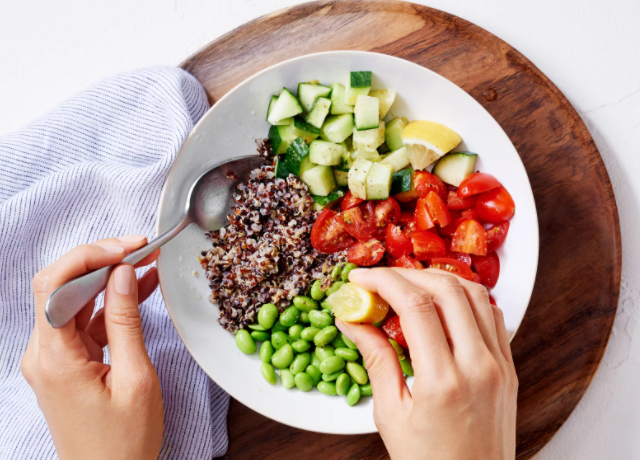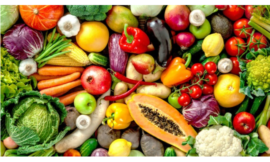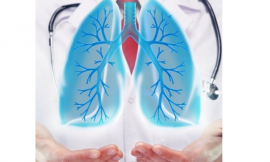We can’t live without oxygen, the respiration is mainly processing by our lungs. So keeping our lungs healthy is crucial and essential to feeling your best. There are lots of factors like exposure to cigarette smoke and environmental toxins, as well as eating an inflammatory diet, can damage on this pair of important organs. Which result asthma, chronic obstructive pulmonary disease (COPD), and pulmonary fibrosis, etc.
Researchers has shown that lifestyle modifications, including following a nutrient-rich diet, can help protect your lungs. To protect our lungs we can follow proper diet , for this here are amazing beneficial foods which help to improve our lungs health.
1. Beets
The vibrantly colored root and greens of the beetroot plant contain compounds that optimize lung function. Beetroot and beet greens are rich in nitrates, which have been shown to benefit lung function. Nitrates help relax blood vessels, reduce blood pressure, and optimize oxygen uptake.
Beetroot supplements have been shown to improve physical performance and lung function in people with lung conditions, including COPD and pulmonary hypertension, a disease that causes high blood pressure in the lungs.
Additionally, beet greens are packed with magnesium, potassium, vitamin C, and carotenoid antioxidants — all of which are essential to lung health.
2. Peppers
Peppers are amongst the richest sources of vitamin C, a water-soluble nutrient that acts as a powerful antioxidant in your body. Getting enough vitamin C is especially important for those who smoke.
In fact, due to the damaging effects of cigarette smoke on your body’s antioxidant stores, it’s recommended that people who smoke consume an extra 35 mg of vitamin C per day. However, many studies show that smokers may benefit from higher doses of vitamin C and that smokers with high vitamin C intake have better lung function than those with lower vitamin C intake.
Consuming just one medium-sized (119-gram) sweet red pepper delivers 169% of the recommended intake for vitamin C.
3. Apples
Research has shown that regularly eating apples may help promote lung function. For example, studies show that apple intake is associated with a slower decline in lung function in ex-smokers. Additionally, consuming five or more apples per week is associated with greater lung function and a reduced risk of developing COPD.
Apple intake has also been linked to a lower risk of asthma and lung cancer. This may be due to the high concentration of antioxidants in apples, including flavonoids and vitamin C.
4. Pumpkin
The brightly colored flesh of pumpkins contains a variety of lung-health-promoting plant compounds. They’re especially rich in carotenoids, including beta carotene, lutein, and zeaxanthin — all of which have powerful antioxidant and anti-inflammatory properties.
Studies show that having higher blood levels of carotenoids is associated with better lung function in both older and younger populations.
People who smoke may significantly benefit from consuming more carotenoid-rich foods like pumpkin.
Evidence suggests that smokers may have 25% lower concentrations of carotenoid antioxidants than nonsmokers, which can harm lung health.
5. Oysters
Oysters are loaded with nutrients that are essential to lung health, including zinc, selenium, B vitamins, and copper. Studies show that people with higher blood levels of selenium and copper have greater lung function, compared with those with lower levels of these nutrients.
Additionally, oysters are an excellent source of B vitamins and zinc, nutrients that are especially important for people who smoke.
Smoking depletes certain B vitamins, including vitamin B12, which is concentrated in oysters. What’s more, studies show that higher zinc intake may help protect smokers from developing COPD.
6. Green tea
Green tea is a beverage that has impressive effects on health. Epigallocatechin gallate (EGCG) is a catechin concentrated in green tea. It boasts antioxidant and anti-inflammatory properties and has been shown to inhibit fibrosis or scarring of tissues.
Pulmonary fibrosis is a disease characterized by progressive, lung-function-compromising scarring of lung tissue. Some research shows that EGCG may help treat this disease.
7. Brazil nuts
Brazil nuts are amongst the richest sources of selenium that you can eat. A single Brazil nut may contain over 150% of the recommended intake for this important nutrient, though concentrations vary significantly depending on growing conditions.
Studies show that a high selenium intake may help protect against lung cancer, improve respiratory function in people with asthma, and enhance antioxidant defenses and immune function, which may help improve lung health.
Because Brazil nuts are such a concentrated source of selenium, it’s recommended to keep your intake to just one or two nuts per day.
8. Lentils
Lentils are high in many nutrients that help support lung function, including magnesium, iron, copper, and potassium. The Mediterranean diet, which has been associated with promoting lung health, is high in legumes like lentils.
Research has shown that following a Mediterranean dietary pattern can preserve lung function in people who smoke. Plus, eating fiber-rich lentils may help protect against lung cancer and COPD.
9. Coffee
In addition to boosting your energy levels, your morning cup of joe may help protect your lungs. Coffee is packed with caffeine and antioxidants, which may be beneficial for lung health.
Research shows that coffee intake may help improve lung function and protect against respiratory diseases. For example, caffeine acts as a vasodilator, meaning it helps open blood vessels, and it may help reduce symptoms in people with asthma, at least in the short term.
Additionally, a review of 15 studies found that long-term coffee intake was associated with positive effects on lung function and a reduced risk of asthma.
These food may help to keep our lungs healthy, so you can include these foods in your daily diet and also you can avoid some habits like smocking which ruin your lungs.





